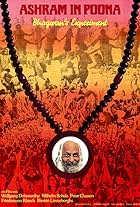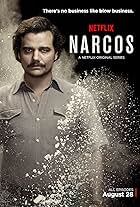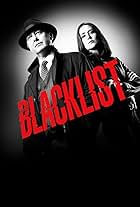
mrdoyle
Joined Feb 2007
Badges2
To learn how to earn badges, go to the badges help page.
Ratings18
mrdoyle's rating
Reviews11
mrdoyle's rating
To hear it said by former Detecetive Joe Kenda (the laconic star of ID's standout Homicide Hunter) reenactment crime is going through the roof in popularity. Judging by the number of programs hitting the 'airwaves' he's right - there are so many cropping up that each new production has to hang its hat on a new conceit or premise in order to stand out from the pack.
In the case of Murder Calls, it's...you guessed it - 911 calls. Each episode starts with a warning that you're about to hear graphic material and that 'viewer discretion is advised' before a 911 call featuring someone in agony is played and they get down to the usual business of inter-cutting interview footage of law enforcement & related characters with poorly rehearsed (though often beautifully lit) scenes of the drama that led up to the 911 caller's demise.
Murder Calls suffers from the same major flaw as its competitors in the genre - it's totally exploitative and made for titillation, more like a scary bedtime story than an insight into the crime itself. Even the graphic warning at the top of the show comes across as more of a tease than an actual warning.
Worst of all, because the producers have painted themselves into a corner by using an emergency call as the hook, they feel obliged to play it over and over again, in sequence, out of sequence, disingenuously re-edited and, most disturbingly, with a variety of sound effects to heighten the 'spookiness'.
In the age of hastily packaged real crime, whether it be reenactment or procedural or a mix of both, there is still room for quality on a budget. The aforementioned Homicide Hunter is proof of that. But Murder Call fails because they have fallen prey to the terrible idea that as long as the audience is happy, the victims don't matter.
In the case of Murder Calls, it's...you guessed it - 911 calls. Each episode starts with a warning that you're about to hear graphic material and that 'viewer discretion is advised' before a 911 call featuring someone in agony is played and they get down to the usual business of inter-cutting interview footage of law enforcement & related characters with poorly rehearsed (though often beautifully lit) scenes of the drama that led up to the 911 caller's demise.
Murder Calls suffers from the same major flaw as its competitors in the genre - it's totally exploitative and made for titillation, more like a scary bedtime story than an insight into the crime itself. Even the graphic warning at the top of the show comes across as more of a tease than an actual warning.
Worst of all, because the producers have painted themselves into a corner by using an emergency call as the hook, they feel obliged to play it over and over again, in sequence, out of sequence, disingenuously re-edited and, most disturbingly, with a variety of sound effects to heighten the 'spookiness'.
In the age of hastily packaged real crime, whether it be reenactment or procedural or a mix of both, there is still room for quality on a budget. The aforementioned Homicide Hunter is proof of that. But Murder Call fails because they have fallen prey to the terrible idea that as long as the audience is happy, the victims don't matter.
True crime falls into two basic categories: the somber, detailed, respectful type that places its emphasis on the events and the victims - and the loud, percussive, sensationalist type that focuses on the presenter. Dark Minds falls hard into the latter pigeonhole. There are quite a few churned out programs featuring preening forensic types who love the camera more than the lab, but none of these people are as disrespectful or narcissistic as M. William Phelps, who chews up the scenery at every opportunity, whether on camera or in voice over.
This program is presented as if it's hard-boiled fiction, the cod suspense a terrible mask, as if there might be a chance the victims weren't really brutally murdered in real life. In the wake of recent masterpieces like The Jinx, Making a Murderer and the first two seasons of A Crime to Remember, Dark Minds serves as an example to potential film makers of what not to do when approaching such material.
This program is presented as if it's hard-boiled fiction, the cod suspense a terrible mask, as if there might be a chance the victims weren't really brutally murdered in real life. In the wake of recent masterpieces like The Jinx, Making a Murderer and the first two seasons of A Crime to Remember, Dark Minds serves as an example to potential film makers of what not to do when approaching such material.
Insights
mrdoyle's rating

















